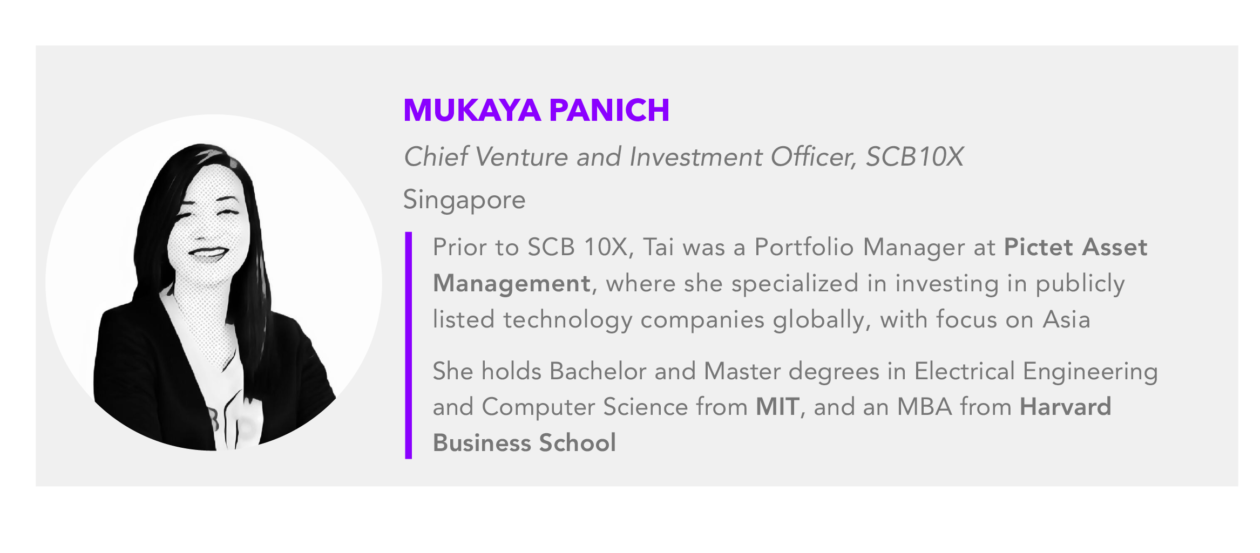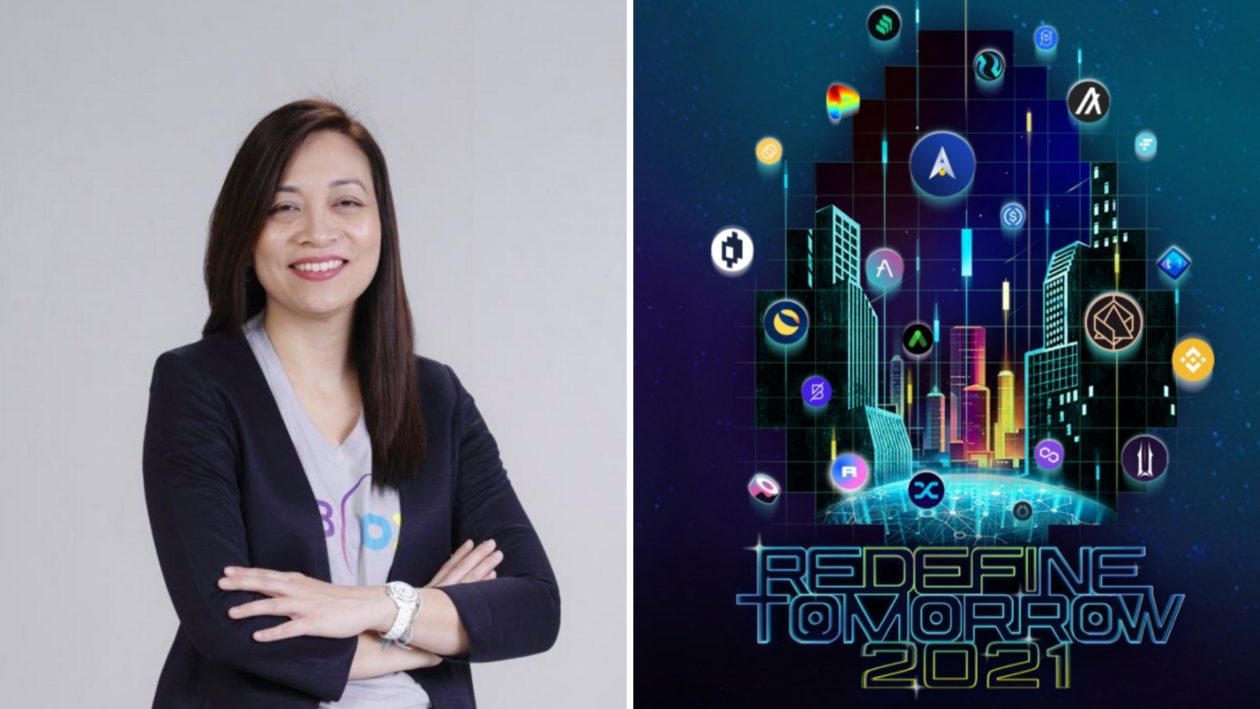Decentralized finance (DeFi) is making inroads into the world of traditional finance.
Products targeting institutional investors, such as the recently launched Compound Treasury and Aave Pro, are providing non-crypto native companies with access to DeFi yields that are higher than the interest rates offered by traditional banks.
Banks too, are getting involved in DeFi. SCB 10X, the venture arm of Thailand’s biggest and oldest bank, Siam Commercial Bank, has been on a mission to prepare the bank for disruptive innovation in the financial industry.
Launched in 2020, SCB 10X is one of the largest venture capital funds in Southeast Asia and has been actively investing in blockchain and DeFi. SCB 10X started with a US$50 million blockchain, DeFi, and digital assets fund for investing in early and growth stage start-ups, and the war chest has since grown to US$110 million, with investments in four DeFi projects to date and a fifth project soon to be announced.
Mukaya “Tai” Panich, chief venture and investment officer at SCB 10X, told Forkast.News in an interview that SCB 10X also has the mission of stimulating real-world adoption and awareness of blockchain and DeFi, especially in Southeast Asia.
Panich was speaking with Forkast.News ahead of SCB 10X’s second annual global DeFi virtual summit, REDeFiNE Tomorrow 2021 held from July 22 to 23 that brings together some of the most prominent leaders in the crypto and DeFi industry, including Binance CEO Changpeng (CZ) Zhao, Compound Labs CEO Robert Leshner, Aave CEO Stani Kulechov, Circle CEO Jeremy Allaire and Fireblocks CEO Michael Shaulov.
“SCB 10X recognizes the importance and the promise of Decentralized Finance (DeFi), and we hope the Summit will help stimulate awareness and growth of DeFi in Asia,” said Panich, in a statement. “We hope that we can create awareness and help educate on DeFi because we don’t want people to invest in DeFi without really understanding. They should understand the fundamentals and the outlook and the products that they use.”
An engineer by background, Panich graduated from the Massachusetts Institute of Technology and Harvard Business School, followed by over 20 years of experience investing in the technology sector in Silicon Valley, New York and Singapore. Prior to joining SCB 10X, Panich managed a pan-Asia fund for Pictet Asset Management in Singapore, where she specialized in investing in publicly-listed technology companies globally, with a focus on Asia.

The following Forkast.News interview with Panich has been edited and condensed.
What was behind SCB’s decision to invest in DeFi?
At the beginning of last year, we, at SCB 10X, were looking at the different emerging technologies that could have a disruptive impact on the bank and financial institutions in general. We were doing work on blockchain and had started to look at DeFi and we were completely amazed by it. I’ve been investing in technology for 14 years, but when I saw DeFi, I was completely stunned because it was so innovative. Whatever traditional finance has, there’s a parallel version in DeFi — credit lending, trading, derivatives, asset management, insurance and so on.
And we thought that something like this could completely disintermediate the bank and financial institutions in the future. So we wanted to prepare the bank by investing and learning about DeFi and try to find partners and integrate DeFi with traditional finance.
How do you see DeFi disrupting traditional finance and how can traditional finance respond?
It is very important to have a team outside the main company to study innovative disruption and prepare the company, and that is exactly what we did. We saw that DeFi — where smart contracts can run automatically and enable counterparties, borrower and lender, to deal directly — could disintermediate and disrupt traditional finance in the future. That’s why it’s very important for us to learn how to work together with the DeFi companies.
Traditional finance is good at making things easy to understand and use for customers. We’re good at acquiring and servicing customers. DeFi right now requires some technical understanding to use it. The two — traditional finance and DeFi — could work well together with traditional finance focusing on the frontend at acquiring and servicing customers and DeFi companies could be the backend, the software layer for traditional finance. It could be like this in the future, and we are starting to see it already.
SCB 10X has been contributing heavily to investing and incubating projects. What’s your investment strategy and some of the key projects in your portfolio?
There are two things we look for when we invest. The first is we like to invest in DeFi projects that have parallels with traditional finance and that’s Alpha Finance Lab and Anchor Protocol. Alpha Finance Lab offers credit lending with leverage, which is pretty much like credit and lending for the bank. Anchor Protocol is a stable rate savings protocol and that’s basically fixed income like bonds, which is the biggest market in traditional finance. We wanted to learn how the projects offer these products in a decentralized way and hope that one day we can find a way to integrate with them.
The second thing that we invest in is infrastructure. There has been so much innovation in DeFi over the past year, but the infrastructure needs to catch up. We recently invested in Ape Board, which has a DeFi dashboard for portfolio management across blockchains — Ethereum, Solana, Binance Smart Chain, Terra and Polygon, and they will add more in the future.
Ape Board’s CEO Mike Phulsuksombati is a very active yield farmer and my best developer. He left to start Ape Board and we ended up investing in him. He was yield farming for people at SCB 10X, including me, and was not able to find a good DeFi dashboard. So he developed a DeFi dashboard to solve his own pain points, and also our pain points, because at SCB 10X we invest a lot on our own in DeFi as that’s the best way to learn about the protocols. We invested in Terra Protocol and couldn’t find a dashboard that supported the Terra blockchain, so Ape Board is actually the first, and still the only one, that supports Terra.
We think the future will be cross-chain and DeFi and blockchain will need to have cross-chain infrastructure, so we invested in Axelar, a cross-chain interoperability DeFi protocol. There are more projects that we are investing in that fit in the thesis of investing in the infrastructure of blockchain and DeFi.
We also felt that giving capital is not enough because there’s so much capital everywhere in the world right now. Being a part of the ecosystem and helping projects from the beginning is important to us. That’s why we run a validator node for Band Protocol. Running the validator node is very important because you validate and confirm every transaction that’s coming into that blockchain network, and help with the security and transparency of the network. We felt that doing that could help bridge the gap between traditional finance and DeFi, and right now in traditional finance, there are not many that do it.
The Bank of Thailand has said that Terra’s Thai baht-denominated stablecoin is illegal. Thailand’s Securities and Exchange Commission has banned meme coins and fan tokens and said that DeFi projects have to seek its approval if they plan to issue tokens. What’s your view on crypto regulations in Thailand?
In general, the Thai regulators are quite friendly with crypto. We have capital controls in Thailand, so money outflow is controlled by the Bank of Thailand. Stablecoins are good for facilitating payments and cross-border remittances, but for a country with capital controls, Thai baht-denominated stablecoins are not allowed as you can send money out in an instant. The Bank of Thailand has a study going on right now on stablecoins.
The regulators are trying to ensure that the public knows what they are investing in and not projects with no substance or not asset-backed like meme coins or social tokens. For DeFi, if the project intends to target Thai investors by marketing in Thailand in the Thai language, they will need to talk to the regulator. Right now, if the DeFi project does not directly target Thai people, and doesn’t have Thai language advertisements, they could do whatever they want. It’s not like the government is clamping down on DeFi protocols.
Ape Board is Thai, but it is not targeting Thai users because DeFi is normally global from day one. You don’t need to target locally or regionally. Likewise, Alpha Finance is from Thailand, but they target global users.
Will SCB launch a crypto exchange like what DBS Bank in Singapore has done?
I cannot say exactly, but it does make sense in general for commercial banks. We have the customer base and our customers already have stock trading or bond trading offered through the securities unit. So when you have that traditional version, then probably in the future, you should have the crypto version too.
What’s your take on crypto developments in Asia?
Singapore has a very progressive government. The Monetary Authority of Singapore is very good at stimulating innovation and so it totally makes sense that there are so many crypto companies that have their Asia headquarters in Singapore.
Thailand actually is quite high in terms of crypto adoption at around 5% of the internet population. We have two successful DeFi projects — Band Protocol and Alpha Finance Lab — and at SCB 10X, we want to stimulate the blockchain and DeFi ecosystem in Thailand. We do it because the bank has to learn it’s going to get disrupted, how to prepare itself and how to work with the ecosystem and partners. When you have the homegrown projects and also a VC like us who stimulate in Thailand and globally, and bring good technology back to the bank and for the people in Thailand so they can understand what is going on, I think that’s a good recipe for innovation in our country.





